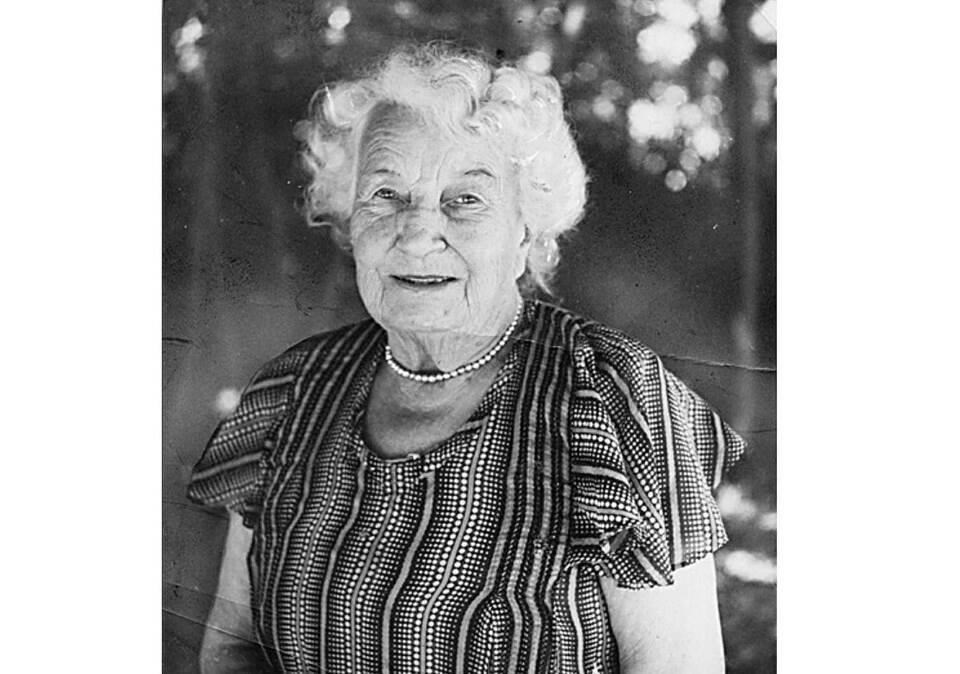A blow from the fire axe could have been enough to set off one of the old shotgun shells.
Fortunately, that didn’t happen last spring when Blake Willson and James Reeve were doing the back-breaking work of digging out invasive plants as part of the restoration of the slope in Fred Gingell Park.
Instead, they pulled out a rusty, old shotgun, from somewhere back in time, along with 10 shells covered with plastic.
“It was buried about six inches because of all the leaves, and everything over the years. We just hit it with our fire axe when we were digging out blackberries,” explained Willson.
“It was definitely a very old gun. It’s in the late stages of decay.”
The sawed-off shotgun was found just a few steps from the first landing on the stairway to the beach.
The stairway is just below the former site of the house of colourful Tsawwassen resident Pansy May Stuttard.
In the mid-1920s, Pansy May leased 27 acres at the south end of English Bluff Road and built a small house on the border. She brought liquor there, which was now legal in Canada, to smuggle into the U.S., according to a 2020 article in the Optimist by Gary Cullen, with the Delta Heritage Society.
By the late 1920s, she built what she called a “cabaret” which was a brothel, or as she clandestinely advertised at the time, “a place to bring a girl for a drink and if you don’t have a girl, we’ll supply one.”
Pansy May lived in her small house at the end of English Bluff Road until about 1936. Then the old house was dismantled and moved to where Fred Gingell Park is today, the Delta Heritage Society said.
She lived there until the mid-1950s when BC Hydro bought the land. She died in 1963 in Cloverdale at age 87.
Earlier newspaper stories also wrote about an elderly Pansy May who never trusted banks and who kept a small arsenal of weapons, firing her shotgun at would-be home invasion robbers.
Willson said there’s nothing specifically to tie the firearm back to Pansy May.
And one questionable part about the find is that the shells were covered with a bit of plastic.
“Frankly speaking, that’s the only thing that makes it a bit of a question because they didn’t invent plastic bags until the 1950s,” said Willson. “So, I would have to say, I don’t know enough.”
Cullen, who co-wrote a book about Pansy May titled, Lord don’t want me: Devil won’t take me, said it can’t be said for certain where the gun came from.
But Pansy May and her partner Elias Roppen, were the only people to ever live on that property, Cullen pointed out in an email to the Optimist.
“I just can’t see how it could not have been connected to her in some way.
“Even if it was hidden there for a friend who came back to use it, then (later) hiding it again, makes more sense than some random person hiding it there at some later date,” Cullen said.
Delta Police Acting Insp. James Sandberg said the shotgun was found in a duffle bag on June 1, and has deteriorated so much it cannot be identified nor rendered safe, so likely will be destroyed.
“Without the back story or determining where and how the firearm has been used, or even dated, there is no historical value. Without being able to render the firearm safe, or decommissioning it, we would not be in a position to share the firearm with a museum regardless,” Sandberg said.



